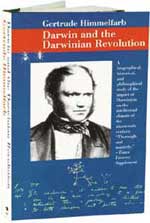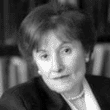Wallace gets Darwinized …
… and served with cold mashed potatoes, lumpy gravy, and wan, limp lettuce.
Here, University of Alabama science historian Michael Flannery, laments that Darwin’s co-theorist Wallace has been “Darwinized”, referencing the many efforts by Darwinists to downplay his involvement in evolutinary theory, principally because he was not a materialist atheist. For example,
Quammen writes, “he was a man of crotchety independence and lurching enthusiasms, a restless soul never quite satisfied with the place in which he lived, a believer in spiritualism and séances, a devotee of phrenology, a dabbler in mesmerism, a later apostate from Darwinian theory when it came to the development of the human brain, an opponent of smallpox vaccination, and an advocate of nationalizing large private landholdings, who by these and other eccentricities gave his detractors some grounds for dismissing him as a crank. Which they did. The question that no scholar or biographer has adequately answered is: How to reconcile such brilliant achievements, radical convictions, and incautious zealotries within one human character–the character of a consummate empiricist and field naturalist?”
Alfred Russel Wallace: A Rediscovered Life does precisely that. These disparate features CAN be reconciled if you quit casting Wallace’s spiritualism, socialism, belief in mesmerism, and his opposition to vaccination dismissively as “eccentricities.” Recast properly, Wallace becomes a prescient figure who called for much-needed land reform, women’s rights, a broadened view of science expanded beyond the strictures of a dogmatically held methodological naturalism, a man who refused to yield on issues of individual freedoms and public health when serious questions remained, a precursor to intelligent design, and a vocal opponent of the ethical and moral dangers of the rising tide of eugenics. Viewed in this way Wallace’s convictions seem less “radical,” his “zealotries” less “incautious,” his “lurching enthusiasms” more understandable — the very epitome of a “consummate empiricist and field naturalist” truly willing to go where the evidence would lead him.
For more, go here.
One thing I learned from reading Flannery’s biography of Wallace is that he developed his passion for land reform as a result of his experiences as a land surveyor, surveying in areas where traditional common lands had been enclosed and country folk were left without resources. Opinions differ as to whether the move was necessary, but the suffering wasn’t.
Here I learned that Darwin’s inner circle was very much pro-enclosure: Read More ›


